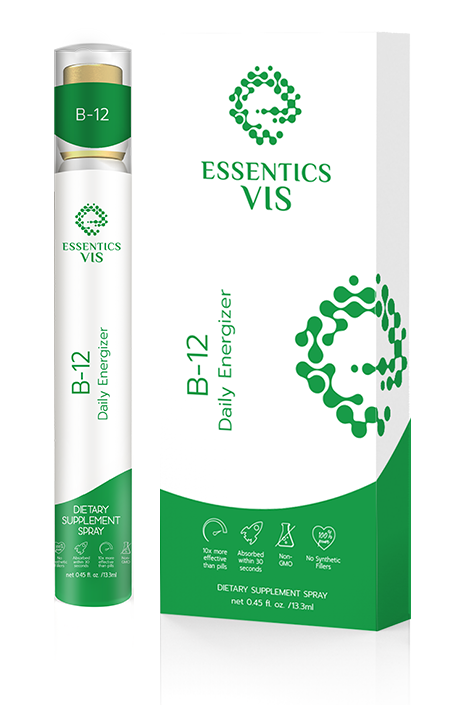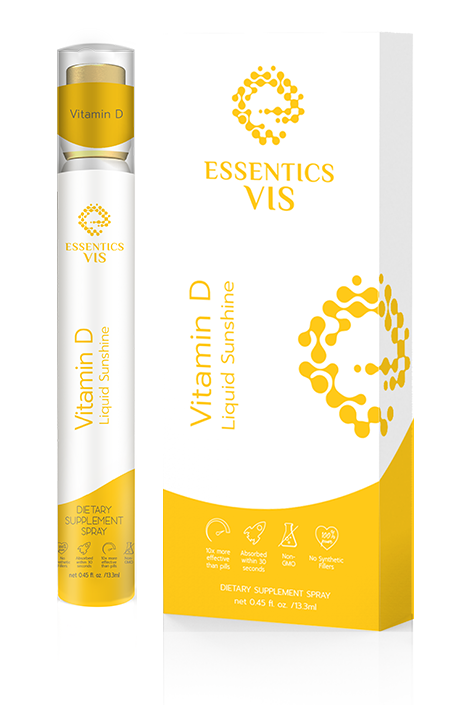The Health Benefits of Vitamin D
Vitamin D is a fat-soluble vitamin that is needed to be healthy and maintain strong bones. Known as the "sunshine vitamin," vitamin D is formed when skin is exposed to the sun's...
5 min read | Nov 26, 2019

Deficiency can result when levels of vitamin B-12 are too low. This can lead to irreversible neurological symptoms. In the United States (U.S.), between 1.5 and 15 percent of the population are currently diagnosed with vitamin B-12 deficiency.
This article will explore the functions of vitamin B-12, how a person would know they are not consuming enough vitamin B-12, and where to source more.
Vitamin B-12 is a water-soluble vitamin, like all other B-vitamins.
This means it can dissolve in water and travel through the bloodstream. The human body can store vitamin B-12 for up to four years. Any excess or unwanted vitamin B-12 is excreted in the urine.
Vitamin B-12 is the largest and most structurally complicated vitamin. It occurs naturally in meat products and can only be industrially produced through bacterial fermentation synthesis.
Vitamin B-12 can be found naturally in animal products, such as fish, meat, eggs, and dairy products. It does not typically occur in plant foods.
Good dietary sources of vitamin B-12 include:
Some types of soya milk and breakfast cereals are fortified with vitamin B-12.
It is always better to maintain a balanced diet and receive healthful amounts of nutrients before active treatment is required. The symptoms of deficiency are easily avoided with a healthful diet.
Vitamin B-12 is crucial to the normal function of the brain and the nervous system. It is also involved in the formation of red blood cells and helps to create and regulate DNA.
The metabolism of every cell in the body depends on vitamin B-12, as it plays a part in the synthesis of fatty acids and energy production. Vitamin B-12 enables the release of energy by helping the human body absorb folic acid.
The human body produces millions of red blood cells every minute. These cells cannot multiply properly without vitamin B-12. The production of red blood cells reduces if vitamin B-12 levels are too low. Anemia can occur if the red blood cell count drops.
In the U.S., the National Institutes of Health (NIH) recommend that teens and adults over the age of 14 years should consume 2.4 micrograms (mcg) of vitamin B-12 a day. Pregnant women should be sure to consume 2.6 mcg, and lactating women 2.8 mcg.
Excessive intake of vitamin B-12 has not demonstrated toxic or harmful qualities. However, people are always advised to speak with their physician before starting to take supplements.
Some medications may interact with vitamin B-12. These include metformin, proton pump inhibitors, and h2 receptor agonists, often used for peptic ulce disease. All of these drugs may interfere with vitamin B-12 absorption. The antibiotic chloramphenicol, or chloromycetin, may also interfere with red blood cell production in people taking supplements.
Vitamin B-12 deficiency occurs when the body does not receive enough vitamin B-12.
It can result in irreversible and potentially severe damage, especially to the nervous system and brain.
Even slightly lower-than-normal levels of vitamin B-12 can trigger deficiency symptoms, such as depression, confusion, memory problems, and fatigue. However, these symptoms alone are not specific enough to diagnose vitamin B-12 deficiency.
Other symptoms of vitamin B-12 deficiency include constipation, loss of appetite, and weight loss.
Once symptoms escalate, they can include neurological changes, such as numbness and tingling in the hands and feet. Some people may have difficulty maintaining balance.
Infants who lack vitamin B-12 may demonstrate unusual movements, such as face tremors, as well as reflex problems, feeding difficulties, irritation, and eventual growth problems if the deficiency is left untreated.
Vitamin B-12 deficiency carries a serious risk of permanent nerve and brain damage. Some people with insufficient vitamin B-12 have a higher risk of developing psychosis, mania, and dementia.
Insufficient vitamin B-12 can also lead to anemia. The most common symptoms of anemia are fatigue, shortness of breath, and an irregular heartbeat. People with anemia might also experience:
Vitamin B-12 deficiency also leaves people more susceptible to the effects of infections.
Vegans face a risk of vitamin B-12 deficiency, as their diet excludes animal-sourced food products. Pregnancy and lactation can worsen deficiency in vegans. Plant-sourced foods do not have enough cobalamin to guarantee long-term health.
People with pernicious anemia may lack vitamin B-12. Pernicious anemia is an autoimmune disease that affects the blood. Patients with this disorder do not have enough intrinsic factor (IF), a protein in the stomach that allows the body to absorb vitamin B-12.
Other at-risk groups include people with small intestine problems, for example, an individual whose small intestine has been surgically shortened. They may not be able to absorb cobalamin properly. People with Crohn's disease are said to be at risk, but researchers maintain that there is a lack of evidence to confirm this.
Gastritis, celiac disease, and inflammatory bowel disease may lead to a deficiencyTrusted Source because these conditions cause the absorption of nutrients to be reduced.
People with chronic alcoholism may lack vitamin B-12Trusted Source, as their bodies are also not able to absorb nutrients efficiently.
Individuals treating diabetes with metformin are advised to monitor their levels of vitamin B-12. Metformin might reduce the absorption of vitamin B-12.
Treatment includes vitamin B-12 injections. A vitamin B-12 injection must be administered to people that have problems with nutrient absorption.
Some people have difficulties absorbing vitamin B-12 from food sources and may need to take supplements.
This includes older adults, patients with pernicious anemia, and those with achlorhydria or intestinal disorders may have problems absorbing vitamin B-12 from food.
Supplements can be taken orally or in a nasal spray. However, oral supplements do not help in many cases of deficiency. In these circumstances, vitamin B-12 may be injected.
Vegans can take supplements to avoid deficiency, as the vegan diet remove the meat products that provide B-12 naturally. This is particularly important during pregnancy and while breastfeeding.
Various B-12 supplements are available to purchase in health food stores and online.
The side effects of taking vitamin B-12 are very limited. It is not considered to be toxic in high quantities, and even 1000-mcg doses are not thought to be harmful.
There have been no reports of an adverse reaction to B-12 since 2001 when a person in Germany reported rosacea as a result of a B-12 supplement. Cases of B-12-triggered acne have also been reported.
Cyanocobalamin is an injectable form of the supplement that contains traces of cyanide, a poisonous substance. As a result, some concerns have been raised about its possible effects. However, many fruits and vegetables contain these traces, and it is not considered a significant health risk.
This type of supplement is not, however, recommended for people with kidney disease.

Vitamin D is a fat-soluble vitamin that is needed to be healthy and maintain strong bones. Known as the "sunshine vitamin," vitamin D is formed when skin is exposed to the sun's...
26
Nov

Deficiency can result when levels of vitamin B-12 are too low. This can lead to irreversible neurological symptoms. In the United States (U.S.), between 1.5 and 15 percent of the population are currently diagnosed...
26
Nov
Whether you have a quick question or need guidance on a persistent issue, we're here.
We know vitamins and minerals, and we love to help.